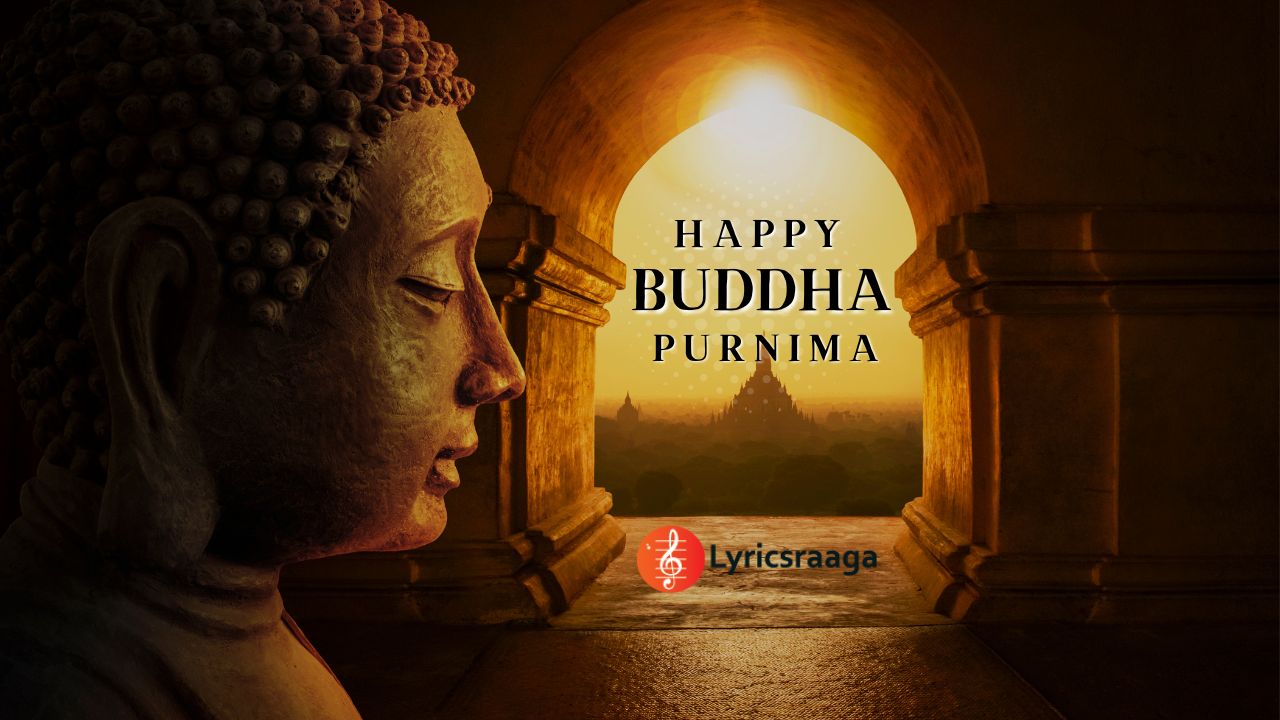Buddha Purnima – History | Significance | Quotes
Buddha Purnima – History | Significance | Quotes: Buddha Purnima, also known as Vesak or Buddha Jayanti, is an important Buddhist festival that commemorates the birth, enlightenment, and death of the historical Buddha, Siddhartha Gautama. It usually falls on the full moon day of the lunar month of Vesakha, which typically occurs in April or May.
During this festival, Buddhists all over the world gather to celebrate the life and teachings of the Buddha. They offer prayers, recite scriptures, and participate in various religious activities. Many also observe a vegetarian diet and perform acts of kindness and generosity.
Buddha Purnima is an occasion for reflection and introspection, as well as an opportunity to reaffirm one’s commitment to the Buddhist path. It is a time to contemplate the Four Noble Truths, the Eightfold Path, and other teachings of the Buddha, and to strive towards greater understanding, compassion, and inner peace.
Buddha Purnima History
The history of Buddha Purnima dates back to over 2,500 years ago when Siddhartha Gautama, who later became known as the Buddha, was born in Lumbini, Nepal. His birth was prophesized to be a great spiritual leader, and his parents, King Suddhodana and Queen Maya, were overjoyed.
As a young man, the Buddha left his luxurious life to seek enlightenment and a way to end suffering. He practiced asceticism for six years before realizing that the path to enlightenment lay in the middle way, a balance between self-indulgence and self-mortification.
The Buddha attained enlightenment under a Bodhi tree in Bodh Gaya, India, and began teaching the Four Noble Truths and the Eightfold Path to achieve enlightenment and end suffering. His teachings spread rapidly throughout India and eventually reached other parts of Asia, including Sri Lanka, China, and Japan.
The Buddha passed away at the age of 80 in Kushinagar, India, and achieved Parinirvana, the ultimate liberation from suffering.
Buddha Purnima Significance
Buddha Purnima is a time for Buddhists to reflect on the life and teachings of the Buddha and to renew their commitment to following the Four Noble Truths and the Eightfold Path to achieve enlightenment and end suffering. It is a time for gratitude, compassion, and self-reflection.
The Four Noble Truths
The Four Noble Truths are the foundation of the Buddhist teachings and represent the core beliefs of Buddhism. They are as follows:
1. Dukkha: The truth of suffering
This truth asserts that suffering is an inherent part of existence. Birth, aging, illness, and death are all forms of suffering. Even when we experience moments of happiness or pleasure, they are fleeting and impermanent. This truth invites us to recognize the reality of suffering and to develop a deeper understanding of it.
2. Samudaya: The truth of the origin of suffering
This truth identifies the cause of suffering as craving or attachment. Our desire for pleasure, wealth, status, and other things leads to attachment, which in turn leads to suffering. The more we cling to things, the more we suffer when they are taken away.
3. Nirodha: The truth of the cessation of suffering
This truth teaches that it is possible to end suffering by letting go of attachment and craving. This can be achieved through the practice of the Eightfold Path, which involves developing wisdom, ethical conduct, and mental discipline.
4. Magga: The truth of the path leading to the cessation of suffering
This truth describes the Eightfold Path as the means to end suffering. The Eightfold Path consists of right understanding, right intention, right speech, right action, right livelihood, right effort, right mindfulness, and right concentration. Practicing the Eightfold Path helps us to overcome attachment and craving, and to cultivate wisdom, ethical conduct, and mental discipline.
By understanding and practicing the Four Noble Truths and the Eightfold Path, Buddhists believe it is possible to overcome suffering and achieve inner peace and liberation from the cycle of birth, death, and rebirth.
The Eightfold Path
The Eightfold Path is a set of guidelines or practices that form the core of Buddhist ethics and spiritual development. It is considered the fourth of the Four Noble Truths and is a practical approach to achieving the cessation of suffering. The Eightfold Path consists of the following eight steps:
1. Right Understanding: This involves understanding the Four Noble Truths and the nature of reality as it is, without distortion.
2. Right Intention: This involves developing a sincere and ethical motivation to act in ways that promote well-being and reduce suffering.
3. Right Speech: This involves avoiding lying, gossiping, using harsh language, and engaging in other forms of harmful communication.
4. Right Action: This involves acting in ways that are ethical and beneficial to oneself and others, and avoiding harmful actions such as killing, stealing, and sexual misconduct.
5. Right Livelihood: This involves making a living in a way that is ethical and does not cause harm to others.
6. Right Effort: This involves making a sincere effort to cultivate wholesome qualities such as kindness, compassion, generosity, and wisdom, while reducing unwholesome qualities such as anger, greed, and ignorance.
7. Right Mindfulness: This involves being aware of one’s thoughts, feelings, and physical sensations in the present moment, without judgment or distraction.
8. Right Concentration: This involves developing a focused and concentrated mind through meditation, which can lead to insight and wisdom.
By following the Eightfold Path, Buddhists believe it is possible to gradually develop ethical behavior, mental discipline, and wisdom, which can lead to the cessation of suffering and the attainment of liberation (nirvana). The Eightfold Path is not a linear path, and practitioners may work on multiple aspects of the path simultaneously.
Buddha Purnima Quotes
Here are some Buddha Purnima quotes:
“The only way to find true happiness is to look within and awaken to our true nature.”
“All that we are is the result of what we have thought. The mind is everything. What we think, we become.”
“Just as a candle cannot burn without fire, men cannot live without a spiritual life.”
“Peace comes from within. Do not seek it without.”
“Do not dwell in the past, do not dream of the future, concentrate the mind on the present moment.”
“Thousands of candles can be lighted from a single candle, and the life of the candle will not be shortened. Happiness never decreases by being shared.”
“Let us rise up and be thankful, for if we didn’t learn a lot today, at least we learned a little, and if we didn’t learn a little, at least we didn’t get sick, and if we got sick, at least we didn’t die; so, let us all be thankful.”
“There are only two mistakes one can make along the road to truth; not going all the way, and not starting.”
“We are shaped by our thoughts; we become what we think. When the mind is pure, joy follows like a shadow that never leaves.”
“In the end, these things matter most: How well did you love? How fully did you live? How deeply did you let go?”




